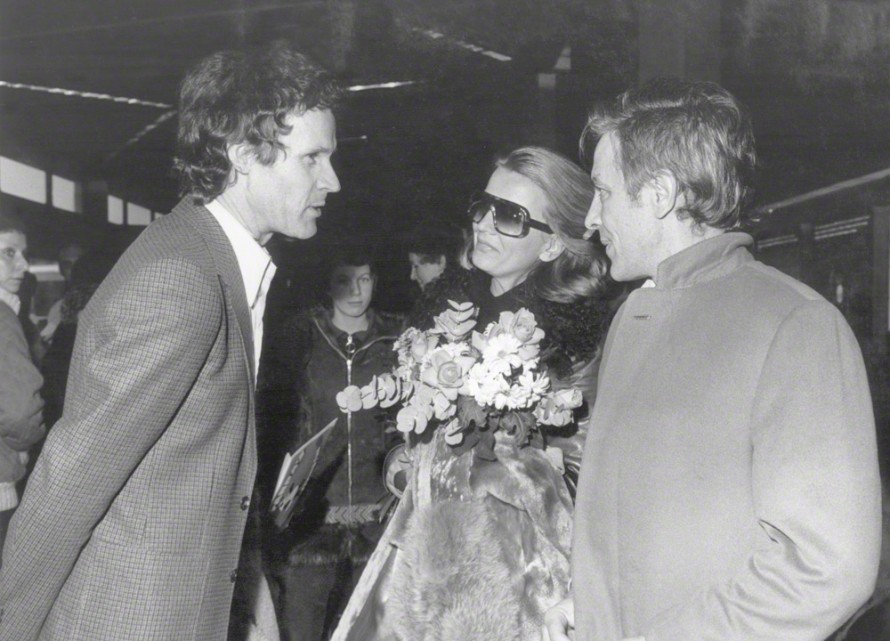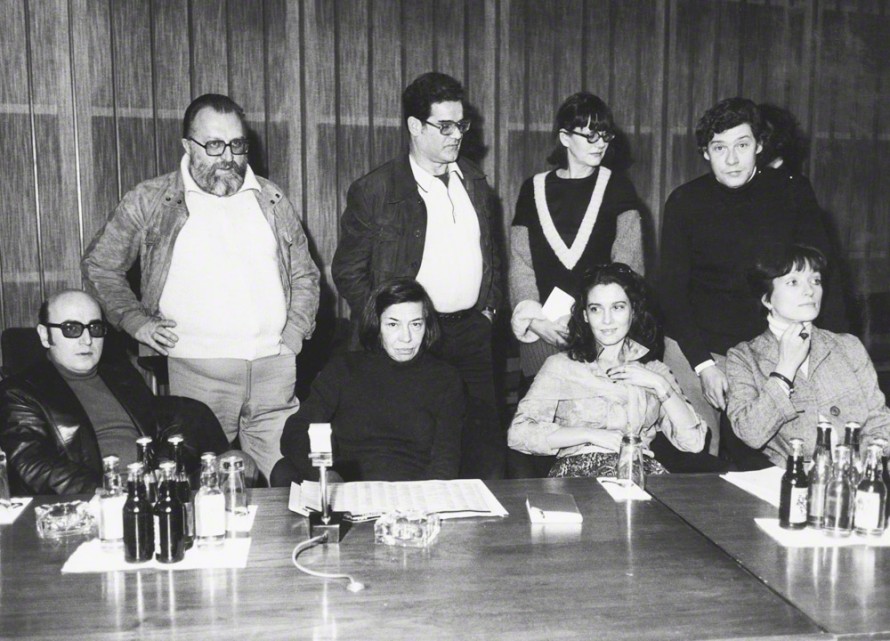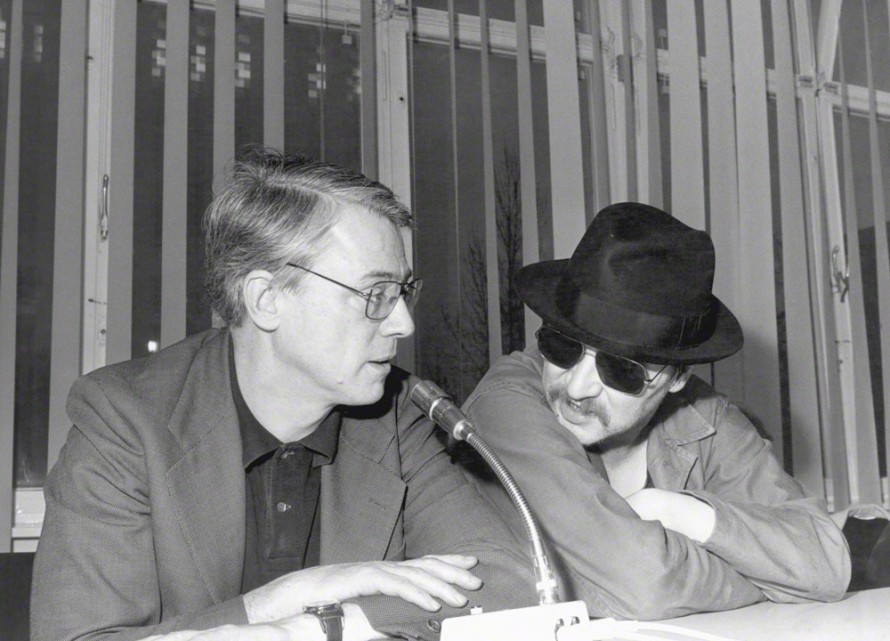1978
28th Berlin International Film Festival
February 22 – March 5, 1978
“The international film world needs the big, turbulent market at Cannes, but it dreams of an ambitious festival devoted to art films, like Berlin and Venice used to be.” – Festival director Wolf Donner in a letter to the board of trustees, arguing for moving the Berlinale to February

Wolf Donner, Gena Rowlands, John Cassavetes
A New Section: "Cinema for People Six and up"
Children are the ideal viewers, Wolf Donner said about the launch of “Cinema for People Six and up” because they are “spontaneous, not weighed down”. The festival director had had a eureka moment when child reporters from SFB Children’s Radio asked him why the Berlinale was only for grown-ups. Considerably embarrassed, Donner replied, “Oh my, that’s a tough question.” For lack of a better answer, Donner promised the children, “I resolve to do what I can to set up a children’s programme for next year. So there!” And so the Kinderfilmfest was born. Donner kept his word and, in collaboration with the State Image Archive, put on “Cinema for People Six and up”. Not only was this new for the Berlinale, it was unique among the A-list festivals.
Film expert Barbara Krämer of the State Image Archive formulated the selection criteria: “We wanted the children to see special films, films that captured them, told stories they could relate to, and were technically well-made. Films with a pedagogical approach but badly realized from an artistic point of view were not included in the programme.”
Initial doubts about the attractiveness of a children’s film festival were impressively put to rest by 12,000 audience members in mostly sold-out screenings. Fierce discussions around the German-Czech co-production Krabat by Karel Zeman indicated the development the Kinderfilmfest would take: While concerned educators protested that children should not be shown such a cruel film, Barbara Krämer insisted that the children should not be underestimated. The Kinderfilmfest would go on to develop its profile in the context of this tug-of-war.

Prominently staffed: The 1978 International Jury - International JuryFestival Impressions(back) Sergio Leone, Konrad Wolf, Frieda Grafe, Jacques Rozier, (front) Theo Angelopoulos, Patricia Highsmith, Ann Carolina Teixeira Souares, Larissa Schepitko
The Weather Changes
The most noticeable innovation in 1978 however was the festival’s move from June to February. Alfred Bauer had repeatedly tried to get an earlier date approved, but could not get past the resistance of the Berlin senate and the FIAPF. Bauer was especially concerned with achieving a greater distance from the Cannes Festival in May, so that the Berlinale could select its films with more independence from its competitor.
Donner took up the issue in his first year of office, but with a different line of argument. He believed that an earlier date would strengthen the film market. Late winter was a lean period for the film industry, and the Berlinale would stand a good chance of establishing itself as an industry meeting place next to Cannes and the MIFED in Milan. As far as Cannes was concerned, Donner argued that the competition was good for both festivals, since it encouraged them to develop clear profiles – and the Venice Festival closing its doors only bolstered these hopes. “Cannes – Berlin means contrast, not competition”, Donner wrote in the Jahrbuch Film 78/79. The rescheduling thus went hand in hand with the Berlinale clearly positioning itself.
The board of trustees and the senate finally followed Donner’s suggestion, and the success of the 1978 Berlinale proved them right. The film market had already had an increase in exhibitors in 1977 and the trend continued this year, with thirty-six countries represented. In September 1978, the advisory board decided an “immediate expansion” of the film market was in order, “for reasons of culture and industry”. Thanks to an increase of approximately 500,000 Deutschmarks in federal funds, it became possible to expand and modernise the film market headquarters in Budapester Straße.

Alexander Kluge, Rainer-Werner Fassbinder
Pom-pom hats and scarves were now the characteristic Berlinale accessories. The lost property offices at the cinemas would have their hands full, but no one complained too much about the cold Berlin weather with a programme as good as it was this year. The selection of films was diverse without being arbitrary. On the contrary, the choices testified to a committed curatorial perspective. Competition and Info-Schau showed a political orientation and were full of films by international and young directors.
Faces of US cinema
The strongest female image in the Competition and one of the most lasting characters in all of film history was Gena Rowlands in John Cassavetes’ Opening Night. This film opened the festival, while the closing film, out of competition, was Steven Spielberg’s Close Encounters of the Third Kind – whereby American cinema showed itself from two totally different sides. The jury, chaired by Patricia Highsmith, awarded the Golden Bear to the “Spanish contribution as a whole” – an unprecedented move that was interpreted as a gesture of solidarity with the young Spanish democracy.